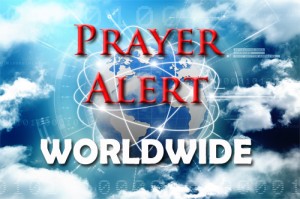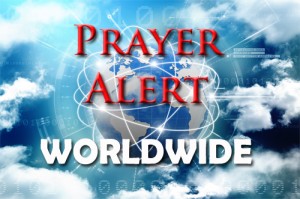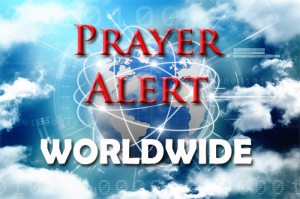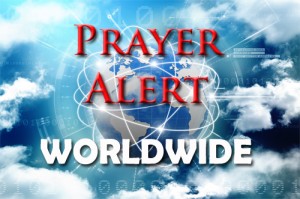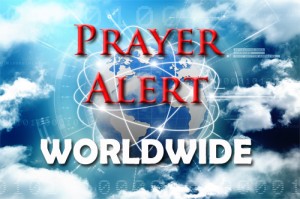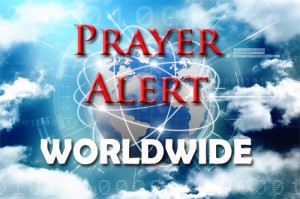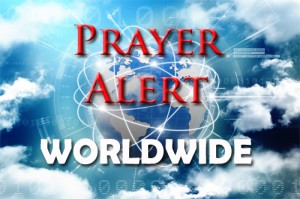Displaying items by tag: North America
Building Canada's prayer ministries
With the second largest land mass in the world and a sparse population, it is easy for a Canadian prayer ministry, house of prayer or city-wide worship ministry to feel isolated. Ears to Hear responded to this need with a prayer network connecting and uniting senior leaders of Christian ministries for mutual encouragement, support, growth, and much more. They have been active and growing for ten years.
USA: refugee numbers reduced again
A maximum of 30,000 refugees will be allowed to resettle in the United States in the next fiscal year. The new ceiling marks a dramatic decrease from this year’s 45,000-person cap, which had also been a significant reduction from previous years. Evangelical and Catholic advocates for refugees were quick to argue that reducing the number of refugees allowed into the USA is a continuation of a series of unprecedented attacks on American values and on the humanitarian nature of the refugee resettlement programme; they said it falls far short of helping the large number of vulnerable people around the world. This argument over quotas comes as the number of displaced people worldwide reaches a record high. UNHCR said there are 68.5 million displaced people in the world today, more than 28 million of whom are considered refugees or asylum-seekers. The Trump administration says Christians in Iraq face genocide; yet only 18 have been allowed to resettle in America this year.
USA/UK: fall in Christian refugee admissions
The United States has admitted 40% fewer Christian refugees in the past year. As the US administration implements stricter immigration policies, almost 11,000 Christians looking for a safe place to go were reportedly refused entry. Christians from the Middle East who have lived in the USA for years are also affected. Dozens of Iraqi Christians are in detention centres, facing likely deportation. ‘This suggests that the president has no real interest in religious persecution or the tenets of religious freedom,’ said the director of Refugee Council USA. Last year the Pew Research Centre reported that the net number of Christian arrivals to the USA was shrinking. Figures released in the UK showed that during the first quarter of 2018, a ‘very low number of religious minority Syrians were recommended for resettlement by the UNHCR and resettled by the UK government’.
USA: Christianity under attack
In Louisiana, Americans United decided to sue a school district earlier this year, asserting, ‘School officials throughout the school system coerce students into religious practices and subject them to unwelcome religious messages and indoctrination.’ They did not want prayers being delivered during school-sponsored events, school events held in churches, or teachers encouraging Christianity in the classroom. The school board voted to fight the lawsuit. Pray for their defence of Christian values to be successful in the law courts. In Pensacola, Florida, a panel upheld a ruling ordering the removal of a cross from a public park, stating that they were ‘bound by existing circuit precedent’. But two of the three judges said they were uncomfortable with the result, and called upon the full circuit court to overturn their own ruling. The argument is ongoing.
USA: Hurricane Florence
Hurricane Florence reached the Carolinas on 14 September. For days the president has been tweeting, ‘Be prepared, be careful, be SAFE’. Two years ago a category 1 storm caused $10.6 billion in flood damage and killed 25 people in the Carolinas. Florence is a category 2 storm with expected category 4 storm surges. It is moving slowly, and coastal areas could experience hurricane-force winds and hurricane conditions for 24 hours or more. Once it moves inland, flooding risk increases, with up to 25 inches of rain forecast (more in some areas). Residents were warned to evacuate not only for their safety, but for the safety of first responders. Pray for homeowners, farmers and businesses contending with a major flooding event; for the safety of first responders; for reliable electricity supplies to hospitals and emergency stations; and for the frail, vulnerable and elderly to be cared for, reassured, and made comfortable.
USA: faith-based disaster relief
North Carolina Baptists on Mission and the North Carolina conference of the United Methodist Church have made a name for themselves during previous hurricanes and disasters by feeding people, clearing debris, gutting uninhabitable homes and rebuilding them. On 12 September, in preparation for Hurricane Florence, they were deciding how to deploy their volunteer armies and equipment. ‘God has opened a lot of doors and given us a lot of opportunity,’ said the Baptists. ‘We are thankful for that. We want to glorify God if we have opportunities to, and we’re looking for the best way to do that right now.’
Israel / USA: special relationship under God’s authority
Most Israeli Jews believe in God. The US is the most God-fearing country in the West. The figures for faith in God are almost identical for the two nations, leaving other ‘Christian’ countries far behind. At a time when Jewish settlers and evangelical Christians appear to run foreign policies in both Jerusalem and Washington, it is hard to escape the conclusion that religion has a pivotal role in the special relationship between them. Also the tense political relations between Israel and the EU and between the EU and Washington are defined by religious beliefs. Israelis and Americans view Europe as godless and decadent, while Brussels believes Israel and the USA are drifting into fundamentalist crazy-land. These specifics come from a recent poll by the Dialogue Institute that surmised, ‘Religious beliefs are also a reliable marker for political views’.
Canada: Ears to Hear
All across the vast land, intercessors unite under the umbrella of ‘Ears to Hear’ as they pray for Canada via conference calls, skype and emails. We can join them as they intercede for the summer to bring an unprecedented spiritual harvest. Pray that the nation will grow deeply hungry for God, and that the Church will use every opportunity to share the Good News of Jesus boldly. Keep lifting up all the summer camps and outreaches. The Lord has been speaking to Canada’s Prophetic Council through a vision of a church bell being rung in these days. The vision represents what He desires to do with the prophetic. May the gift of prophecy ring out in new and freshly restored ways. Pray that it is clear, pure and centred on Jesus. Across Canada, the Lord has been strongly emphasising that it’s time for reconciliation. Pray that even long-estranged relationships will be restored. Pray for grace, humility and forgiveness to grow in the Body of Christ. Believe for miraculous reconciliations.
Arctic Sea breaking up for first time
The oldest and thickest sea ice in the Arctic has started breaking up, opening waters north of Greenland that are normally frozen, even in summer. This phenomenon, never previously recorded, is due to warm winds and a climate-change driven heatwave. One meteorologist described the loss of ice as ‘scary’. Others said it could force scientists to revise their theories about which part of the Arctic will withstand warming the longest. ‘I think that solar heating of the water column will increase during this opening (of the ice) and this will delay freeze-up and ice formation,’ said an expert at the Danish Meteorological Institute. Freakish Arctic temperatures have alarmed climate scientists since the beginning of the year. There are concerns that the polar vortex may be eroding.
USA: Trump under pressure
Donald Trump's former personal attorney and ‘fixer’ pleaded guilty to eight felony counts, including two that implicate President Trump and Paul Manafort, President Trump's former campaign chairman who was found guilty on eight counts in a separate case. Meanwhile Trump is tweeting repeatedly that the campaign finance regulations Michael Cohen pleaded guilty to are not crimes. We can pray for America’s president and all who hold positions of authority and influence in government to be men and women who walk in righteousness, integrity, wisdom and truth. May any who are dishonest or irrational be removed from their positions of power. See

